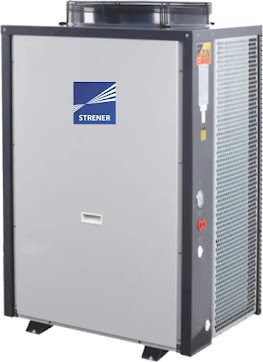Revolutionizing Home Water Heating: The Ultimate Guide to Heat Pump Water Heaters
In today's eco-conscious world, finding energy-efficient solutions for everyday needs is paramount. One such innovation transforming the landscape of home water heating is the heat pump water heater. In this comprehensive guide, we'll delve into the workings, benefits, and installation of heat pump water heaters, ensuring you make an informed decision for your home.
What is a Heat Pump Water Heater?
A heat pump water heater operates on a fundamentally different principle than traditional electric or gas-powered heaters. Instead of generating heat directly, it utilizes a heat pump to transfer warmth from the surrounding air to the water in the tank. This process is highly efficient, as it consumes less energy compared to conventional methods, making it an environmentally friendly choice.
How Does it Work?
The heat pump extracts heat from the ambient air, even in colder climates, and transfers it to a refrigerant within the system. This refrigerant is then compressed, raising its temperature significantly. The heated refrigerant is passed through a coil within the water tank, where it releases its warmth to heat the water. The cooled refrigerant cycles back to the beginning of the process, ready to absorb more heat from the air. This continuous cycle ensures a steady supply of hot water while minimizing energy consumption.
Benefits of Heat Pump Water Heaters
Energy Efficiency: Heat pump water heaters are renowned for their energy efficiency, consuming up to 50% less electricity compared to conventional heaters. This results in substantial savings on utility bills over time.
Environmental Friendliness: By reducing energy consumption, heat pump water heaters contribute to lowering greenhouse gas emissions, making them an eco-friendly choice for environmentally conscious homeowners.
Consistent Performance: Unlike solar water heaters, which rely on sunlight, heat pump water heaters operate consistently regardless of weather conditions, ensuring a reliable supply of hot water year-round.
Long-term Savings: Although the initial investment may be higher than traditional heaters, the long-term savings on energy bills make heat pump water heaters a cost-effective choice in the long run.
Installation and Maintenance
Installing a heat pump water heater requires careful consideration of location and space requirements. Ideally, it should be placed in a well-ventilated area with ample air circulation to maximize its efficiency. Additionally, regular maintenance, such as cleaning the air filters and checking refrigerant levels, is essential to ensure optimal performance and longevity of the unit.
Is a Heat Pump Water Heater Right for You?
While heat pump water heaters offer numerous benefits, they may not be suitable for every household. Factors such as climate, available space, and budget should be taken into account when considering this option. Consulting with a professional plumber or HVAC technician can help determine if a heat pump water heater is the right choice for your home.
Conclusion
In conclusion, heat pump water heaters are revolutionizing the way we heat water at home, offering unparalleled energy efficiency, environmental friendliness, and long-term savings. If you're ready to embrace the future of home water heating, consider investing in a heat pump water heater from The Strener. With our cutting-edge technology and commitment to sustainability, we're leading the charge towards a greener, more efficient future for homeowners everywhere. Choose The Strener for your heat pump water heater needs and experience the difference firsthand.



Comments
Post a Comment